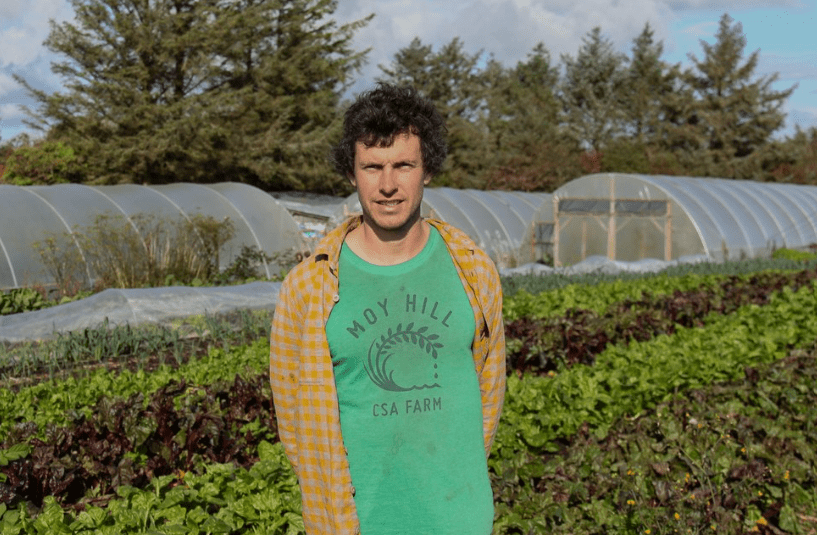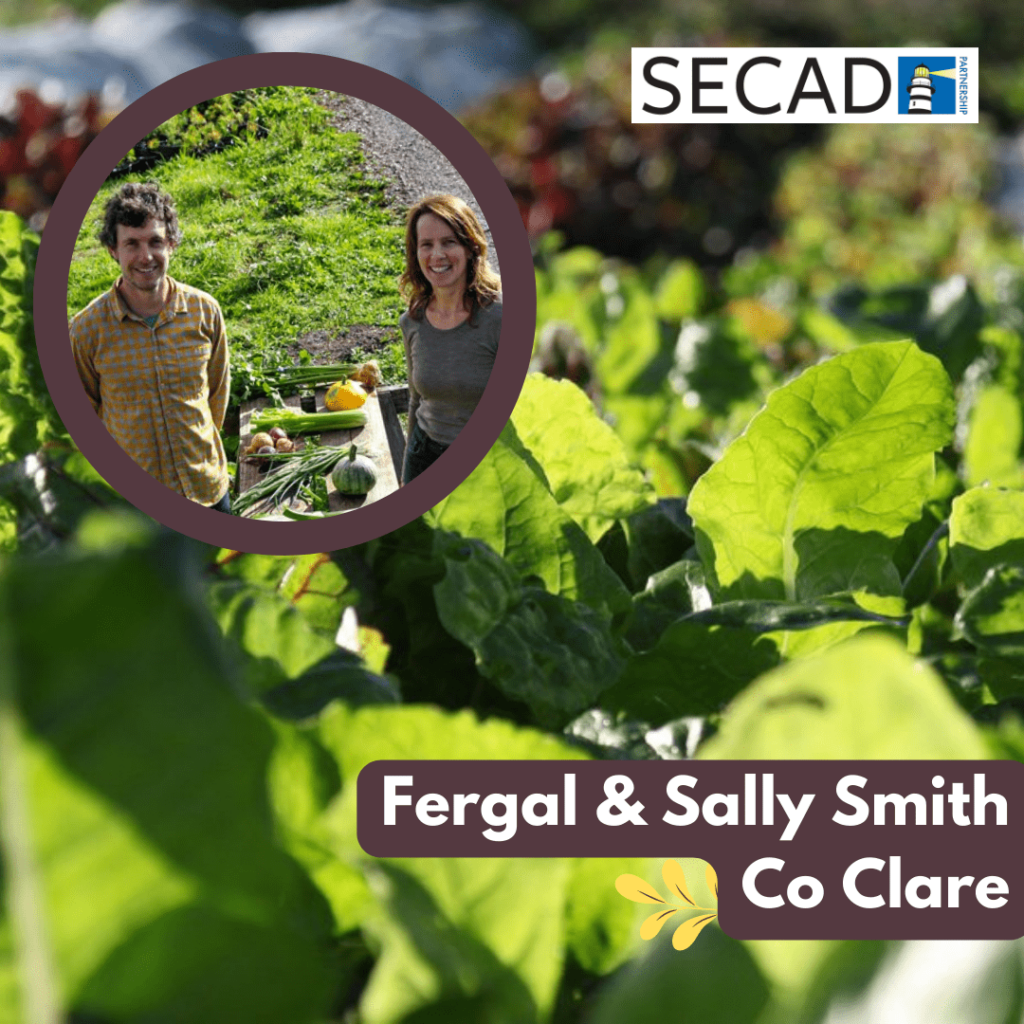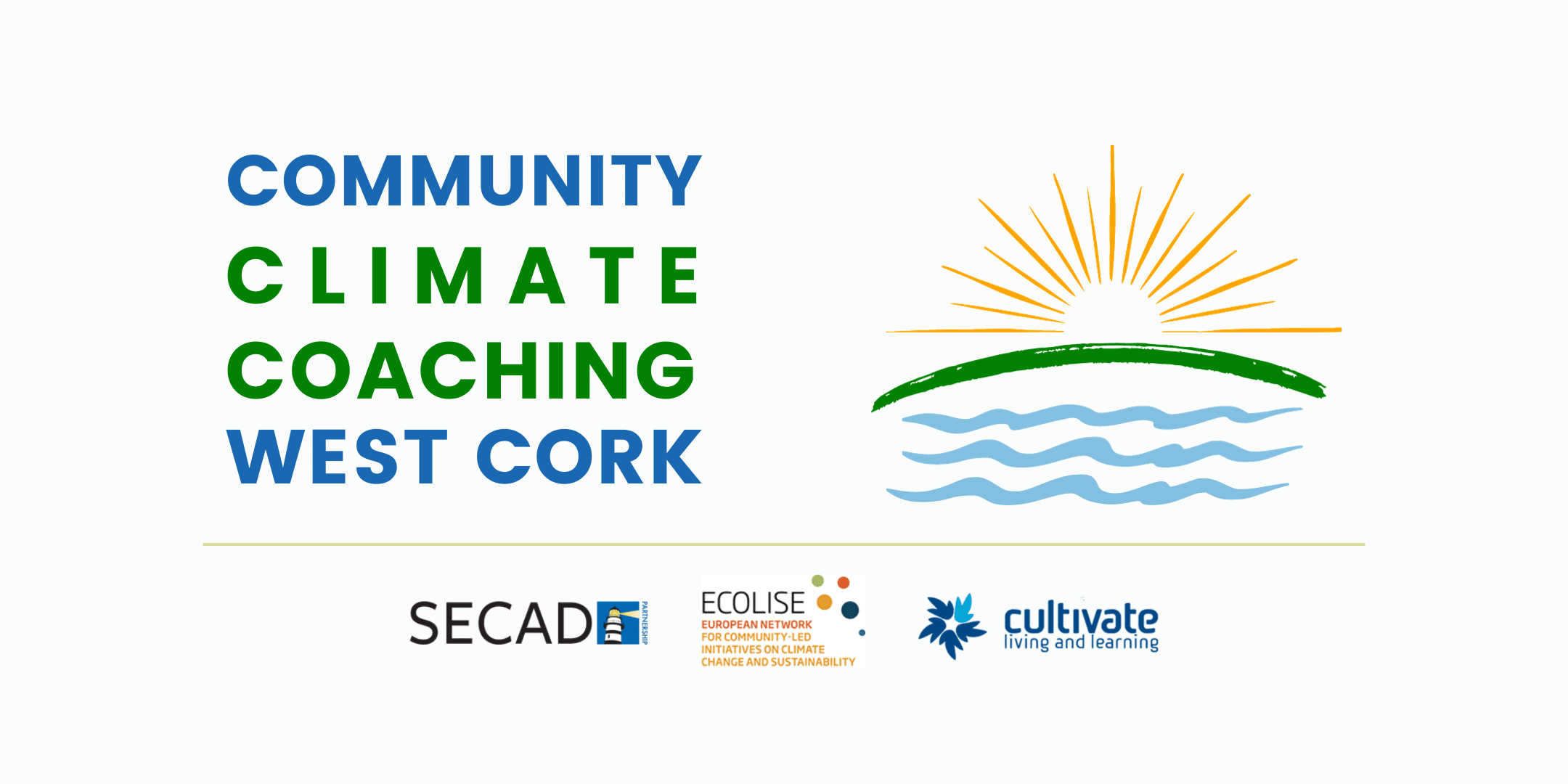Fergal & Sally Smith, Moy Hill Farm, Co Clare
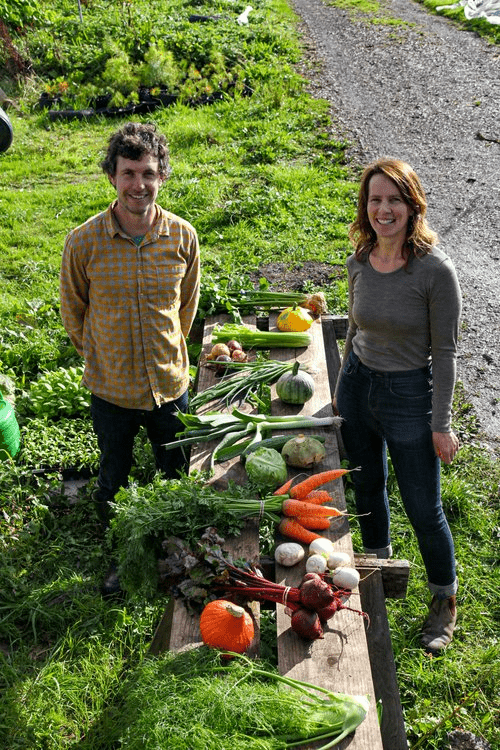
Introduction to Moy Hill Farm
Fergal and Sally run an 80-acre mixed regenerative farm on the west coast of Ireland. Fergal grew up on an organic market garden farm in Mayo where he learned about the importance of soil health and farming with nature. After a few years of travelling and surfing around the world, Fergal returned and started his own farm near the surfing town of Lahinch in County Clare, where he now lives with his young family.
Moy Hill Farm contains a mixture of livestock – cows, sheep and hens, and grows about 25 different crops in their “No Dig” Market Garden. They sell a variety of fresh produce at markets and to local restaurants.
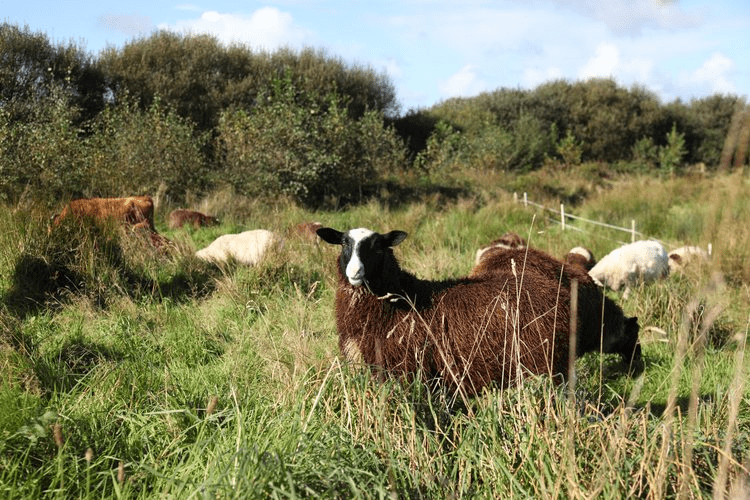
Regenerative Agriculture Training
Fergal and Sally began farming regeneratively in 2017 after learning about the methods in a Holistic Management course provided by the Savory Institute, an agricultural research organisation with hubs across the world. Here, they learned how to sustainably manage livestock and how to plan the year ahead to ensure fresh pasture year-round, reducing feed and fertiliser costs. Since then, Fergal has engaged in many trainings, such as a regenerative farming course run by expert Richard Perkins and the Irish National Organic Training Skillnet. He said it is inspiring to learn about farmers from around the world engaging in regenerative agriculture through these trainings and events.
Using Livestock to Regenerate the Land
Fergal described how animals are key for regenerating large areas of land. He views his way of farming as managing ecosystems, protecting and enhancing habitats, and focusing on diversity. Fergal manages his animals so that they benefit, not harm, the environment around them.
Livestock are put into small paddocks and moved daily onto fresh pasture. This rotation cycle, called “mob grazing”, allows for areas of grassland to rest and recover in the periods where they are stockless. Plants are left to “fully express themselves, which allows for the other habitants of the farm, such as insects and birds, to thrive as a result. Fergal believes that he can regenerate hundreds of acres of land with the help of livestock (cows, sheep, poultry) and regenerative management practices.
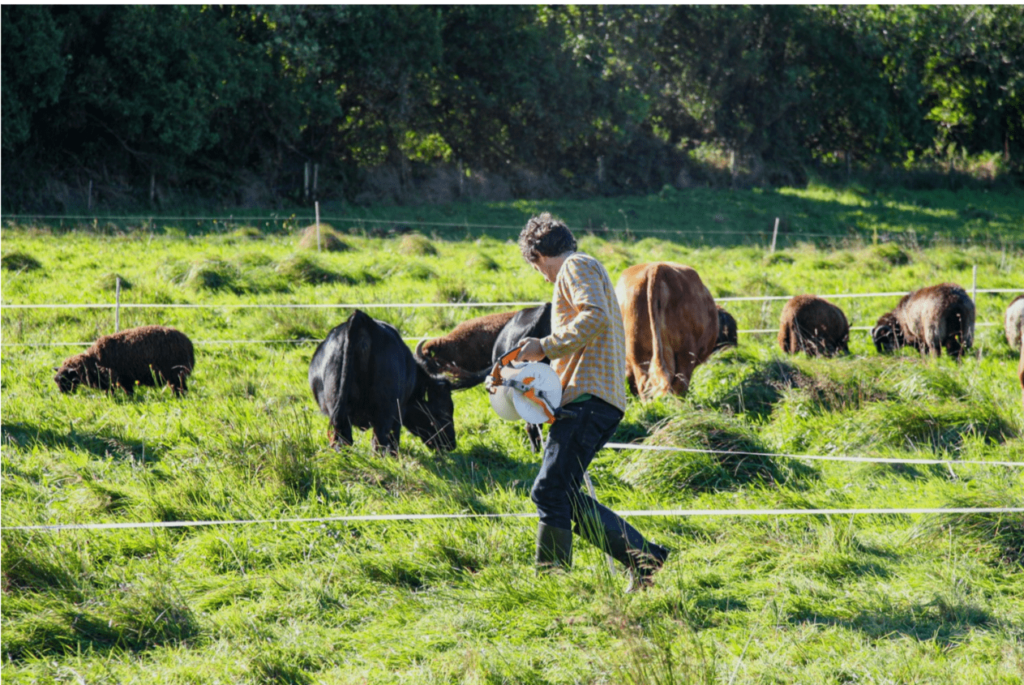
Regenerative Verification
Every year, Moy Hill farm get an EOV “Ecological Outcome Verification” assessment on their land which verifies that their soils are getting healthier. The EOV surveyors monitor every field on the farm to ensure all environmental indexes are going up. Fergal described how this EOV verification is a simple way of holding regenerative farmers accountable, as it will prove whether they are regenerating their land and making a positive impact.
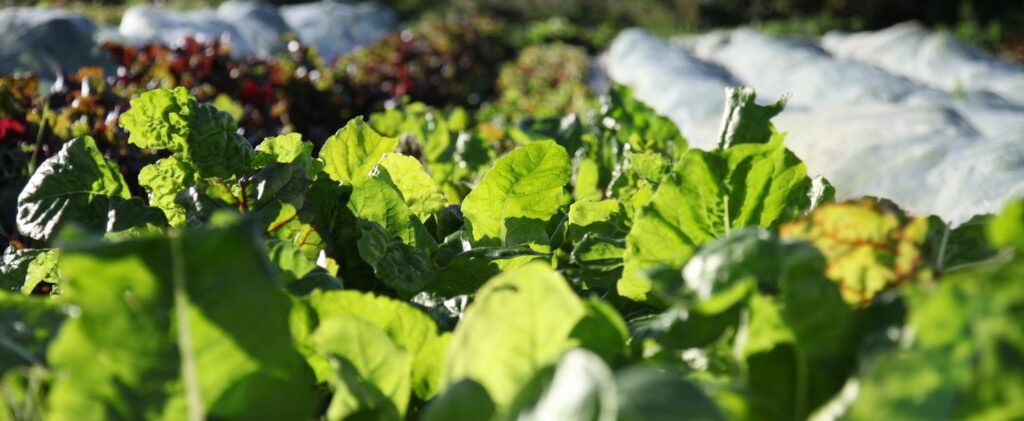
No Dig Market Garden
Fergal and Sally follow the regenerative practise of minimum disturbance of the soil. Their market garden is not tilled or dug, in an effort to protect the soil’s structure and biodiversity. Up to 25 different crops are grown on their market garden such as salads, kale, beetroot, beans, tomatoes, squash, courgettes, peas, turnips, leeks, onions, and garlic. Their salads are the best seller as local restaurants and shops are in constant demand for fresh, local lettuce.
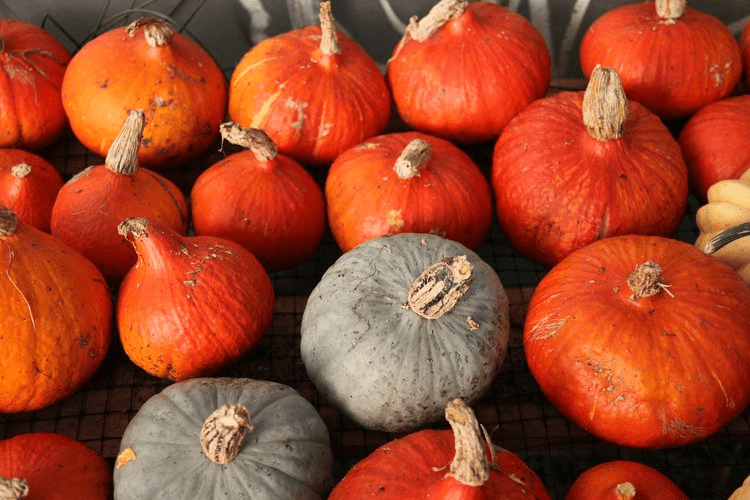
An Ode to the Past
Fergal described how the way he farms now, is very similar to how traditional farms in Ireland were managed many years ago. Most farms used to have a vegetable garden, poultry, and it was common to have a mixture of livestock, whilst sewing native trees and orchards. Regenerative Agriculture is therefore, as Fergal described, not a “new” concept. It is all about farming in a way that makes sense for the local environment and for the farmers themselves. Fergal and his family benefit from fresh produce and an outdoor lifestyle that is in tune with nature. He describes farming this way as a “labour of love” and “being part of a bigger picture”, whilst also creating a healthy life for himself and his young family. The work of regenerative agriculture never stops, but this makes for an exciting challenge for Fergal.
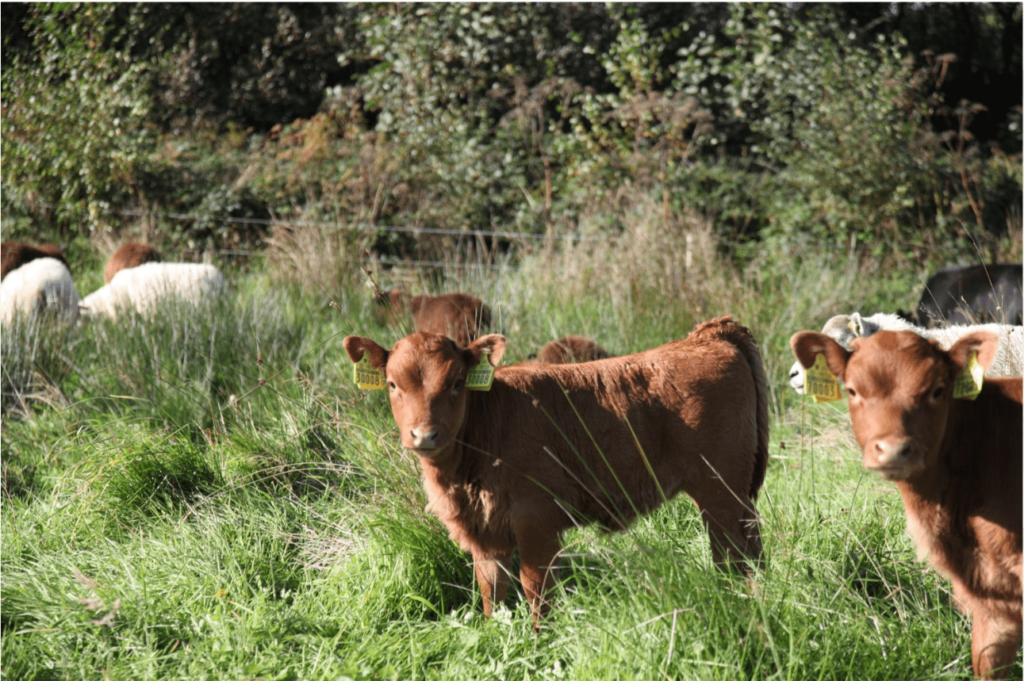
An Affirming Experience – Farming with Intention
Fergal and Sally believe in “farming with intention”, and that diversity across their farm is key to its health and long-term success. While they are not receiving any financial support to farm regeneratively, indeed the training and EOV certification is costing them money, they are able to grow high quality food and thus market their products at a higher price. Fergal noted how he has been experiencing the ecosystem on his land ‘thrive’ since implementing RA practices, and he spoke about how this is an affirming experience for himself and his family.
Learn more on their website: www.moyhillfarm.com
